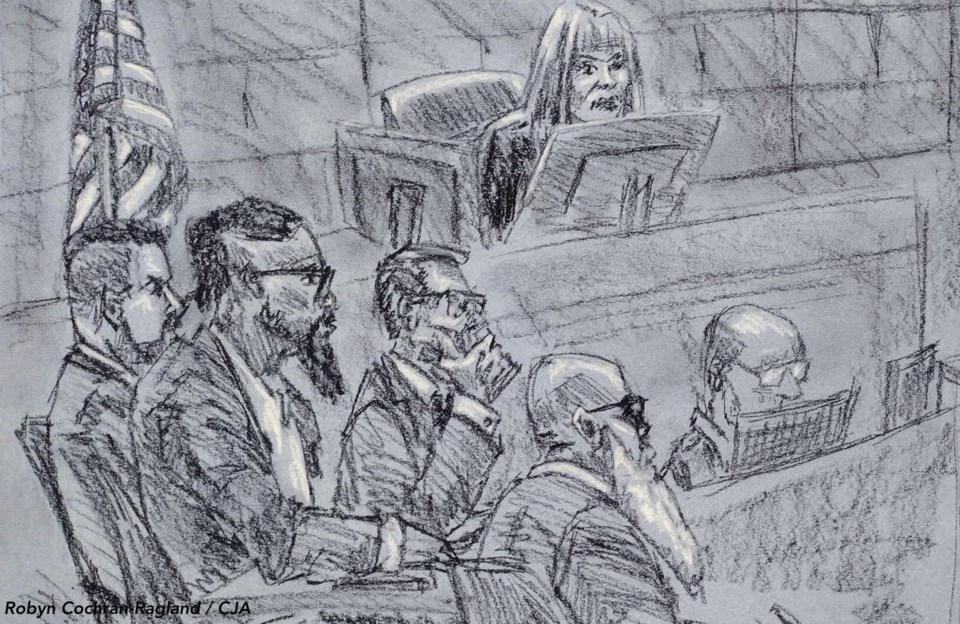DENVER (AP) — A former member of Gambia's military was convicted Tuesday of charges that included torturing people suspected of involvement in a failed coup against the West African country's longtime dictator nearly 20 years ago.
Michael Sang Correa was charged with torturing five men believed to be opponents of Yahya Jammeh following an unsuccessful plot to remove him from power in 2006.
A jury that heard the case in federal court in Denver found Correa guilty on all charges. He was also charged with conspiring with others to commit torture while serving in a military unit known as the “Junglers,” which reported directly to Jammeh, in the latest international trial tied to his regime.
Correa came to the U.S. in 2016 to work as a bodyguard for Jammeh, eventually settling in Denver, where prosecutors said he worked as a day laborer. Correa, who prosecutors say overstayed his visa after Jammeh's ouster in 2017, was indicted in 2020 under a rarely used law that allows people to be tried in the U.S. judicial system for torture allegedly committed abroad.
Survivors traveled from Gambia, Europe and elsewhere in the U.S. to testify, telling the jury they were tortured by methods such as being electrocuted and hung upside down while being beaten. Some had plastic bags put over their heads.
Prosecutors showed the jury photos of victims with scars left by objects including a bayonet, a burning cigarette and ropes. The men were asked to circle scars on photos and explain how they received them.
The defense had argued Correa was a low-ranking private who risked torture and death himself if he disobeyed superiors and that he did not have a choice about whether to participate, let alone a decision to make about whether to join a conspiracy.
But while the U.S. government agreed that there's evidence that the Junglers lived in “constant fear,” prosecutors said some Junglers refused to participate in the torture.
Jammeh, a member of the military, seized power in a coup from the country’s first president in 1994, and survived three significant coup attempts, making him suspicious of the very military he depended on to keep him in power, according to testimony.
Jammeh has been accused of ordering opponents tortured, jailed and killed during his more than 22-year rule of Gambia, a country surrounded by Senegal except for a small Atlantic coastline. He lost the 2016 presidential election and went into exile in Equatorial Guinea in 2017 after initially refusing to step down.
In 2021, a truth commission in Gambia urged that the perpetrators of crimes committed under Jammeh’s regime be prosecuted by the government. Other countries have also tried people connected with his rule.
Last year, Jammeh’s former interior minister was sentenced to 20 years behind bars by a Swiss court for crimes against humanity. In 2023, a German court convicted a Gambian man who was also a member of the Junglers of murder and crimes against humanity for involvement in the killing of government critics in Gambia.
Colleen Slevin, The Associated Press


